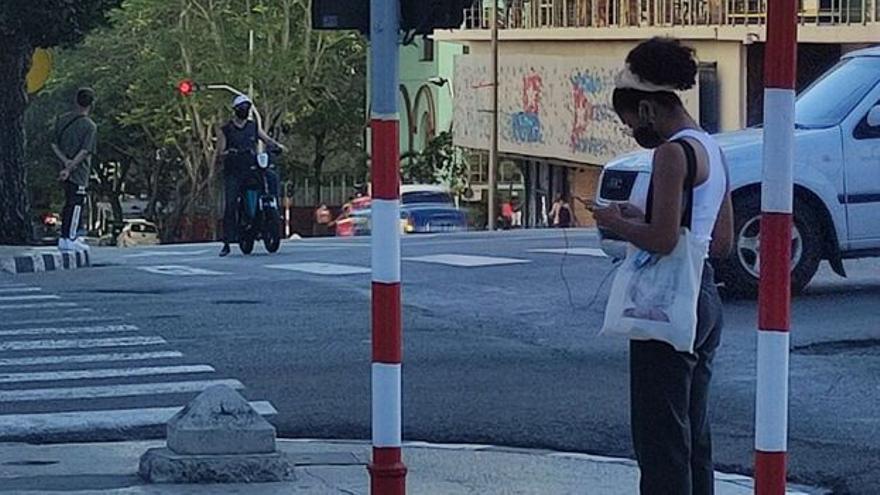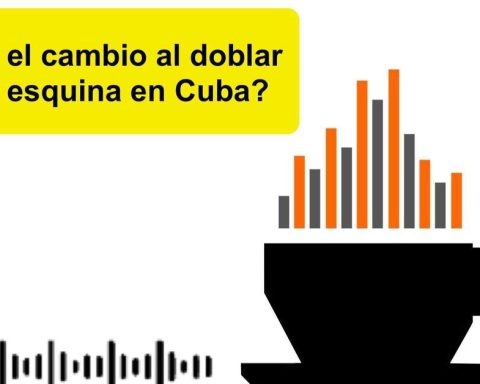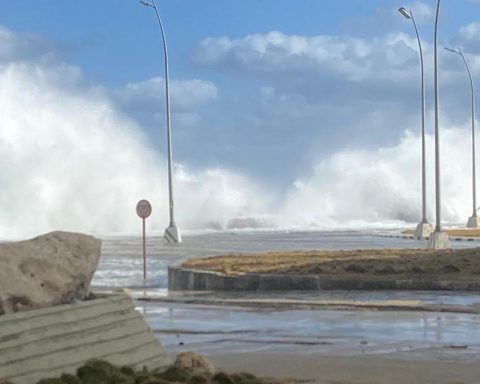
The deputies will foreseeably approve this Thursday the Social Communication Law, a standard that has had up to 34 versions and that in the last and definitive one already formally penalizes the mere interaction of users on social networks. Beyond the criminalization – even greater – to which independent journalists and press are exposed, any Internet user will feel more insecure when the rule comes into force.
It is its chapter IV, which deals with Social Communication in cyberspace, which has undergone a significant modification since the first versions of the law, published in July 2022. In this section, article 51 provides that the people to whom the law (all of them, as specified in article 2) must “respond for the content they generate, select, modify, interact and publish”.
In practice, it will suffice to make a comment or react favorably to a publication that is considered to have the “objective of subverting the constitutional order” or “instigating terrorism and cyberwar” to contravene the law, although the penalty is unknown. . The sanctioning regime is yet to be developed into a regulation, but the document anticipates that the “administrative or judicial” route will be applied, as appropriate.
In practice, it will suffice to make a comment or react favorably to a publication that is considered to have the “objective of subverting the constitutional order”.
To date, there have been several cases of people who have been investigated or called to respond and, even, against whom disciplinary measures have been taken in the academic or work environment for their interactions on social networks, but there was no specific rule that classify as a crime or misdemeanor.
Article 51 contains a no less disturbing section, by threatening to “implement, and inform users, self-regulation procedures that avoid publications that violate the provisions of the Constitution, this Law and other regulatory provisions on this matter”, of which follows that citizens will also be told what they can and cannot share, applaud or regret on their social networks.
This Wednesday, in the debate prior to the approval of the norm, the deputies reflected on the importance of having a Communication Law that goes beyond the traditional media and professionals involved in the information process.
Deputy Rosa Miriam Elizalde said that “an anthropological change is taking place due to the emergence of new communities, with new languages”, for which a regulation is necessary that “for many, it is even a national security law, because we are talking about a national legislation that has to deal with a transnational infrastructure”.
In the deputy’s intervention, the intention of intervening in a cyberspace that escapes national legislation was guessed. “When you access Facebook,” Elizalde pointed out, “you accept everything because what you want is to communicate with your uncle, with your cousin. You accept a regulation that is not national, which is also not only transnational, international, but also the servers They are physically somewhere.
In his words, it was intuited that the new legal text had the intention of regulating the user since he cannot intervene in the network.
Most countries are being forced to adapt their rules to what happens on social networks, penalizing criminal behavior for violating some fundamental rights. In the Cuban case, however, the fact of sharing news that may be absolutely true but the regime considers that it threatens its stability is threatened with being classified as a crime.
“Criticism of senior officials, defame, slander or insult the people, organs, agencies and entities of the State, political, mass and social organizations of the country” are expressly prohibited.
This will predictably penalize the dissemination of protests, an activity that has already been pointed out by the official press and the courts themselves as reprehensible for trying to “destabilize the social order.” It could also be considered potentially harmful to share or interact with the publication of photographs or messages that reveal shortcomings of the State (which the regime considers to be an attempt to denigrate the Revolution), as has happened with hospitals, schools and other facilities in poor condition.
Also, in the same sense, “criticism of senior officials, defame, slander or insult the people, organs, agencies and entities of the State, political, mass and social organizations of the country” are expressly prohibited.
The authorities have also lost control of the information considered “red chronicle”. Murders, violent robberies, femicides… are more than ever within the reach of the population thanks to the diffusion they have achieved through social networks, a reality that has ruined the image of a model country in social peace that existed when the Police contained crime statistics. This type of content could also be among those that the regime considers contrary to the interests of the State.
The bill also prohibits other attitudes penalized internationally, such as harassment, humiliation, racism, homophobia or the promotion of hate speech, although this is on paper and it will be necessary to see if its application is successful, once again. , arbitrary and motivated by ideological issues.
“This is the only way to reduce the profound asymmetry that national states have in the face of the brutal economic power of these large platforms, mostly North American,” said the deputy.
________________________
Collaborate with our work:
The team of 14ymedio He is committed to doing serious journalism that reflects the reality of deep Cuba. Thank you for accompanying us on this long road. We invite you to continue supporting us, but this time becoming a member of our newspaper. Together we can continue transforming journalism in Cuba.
















